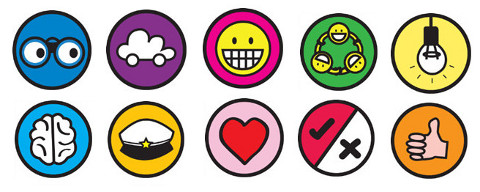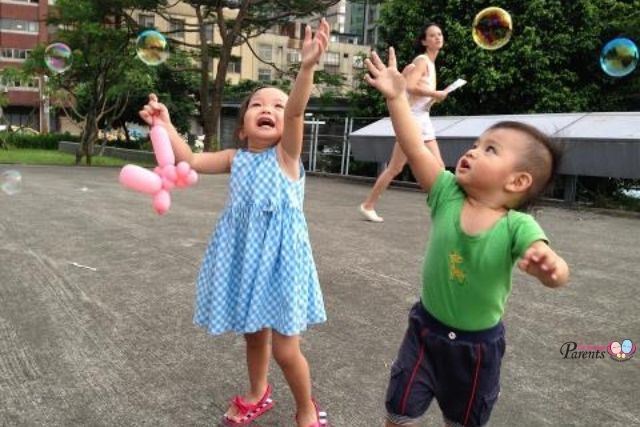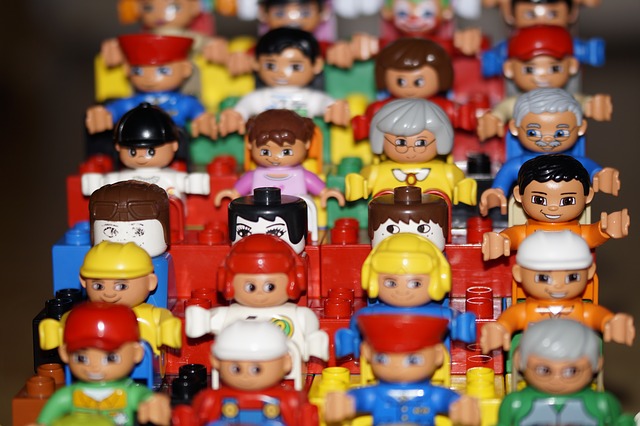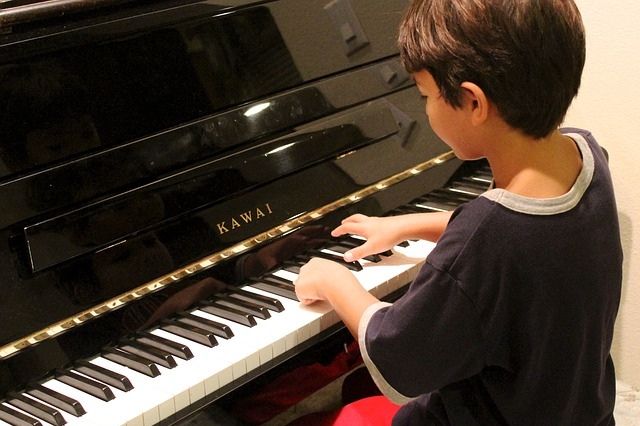Is it a waste of time when children are left to play on their own? What should parents do to help them learn? If these questions sound familiar to you, the following 10 Play Values may just help you see unstructured, free play in a new light.

- How do you foster creativity in your child?
1. Creativity: Child-initiated, unstructured play stimulates children’s imagination as they have the freedom to create and explore beyond set answers.
* * * * *
- Do you encourage adventure and curiosity?
2. Discovery: As children explore, they learn about themselves and the world. They make discoveries and are motivated to try new things.
* * * * *
- How do you help your child overcome unpleasant experiences?
3. Mental Wellness: Play brings about positive effects on mood that help children cope with negative feelings.
* * * * *
- What do you do when your child takes a long time to solve problems?
4. Critical Thinking: Unstructured play develops flexible thinkers. When faced with obstacles, children find new ways to figure out problems on their own.
* * * * *
- How often does your child interact with people outside of school?
5. Social Skills: As children play in groups, they are able to form meaningful relationships with other people. They learn to share, negotiate ideas and handle conflicts.
* * * * *
- Is your child given time to play outdoors?
6. Physical Health: Outdoor, physical play develops motor skills, coordination, strength and stamina – all important factors in building active and healthy bodies.
➡️ Related Read: 10 Indoor And Outdoor Activities For Kids That Are Fun And Educational
* * * * *
- Do you have difficulty managing your child’s moods?

7. Self-Regulation: Through play, children get to identify the experience and express a range of emotions. They learn to control their feelings to better deal with disappointments and frustrations.
* * * * *
- When do you let your child take the lead?
8. Leadership: A free environment allows children to initiate ideas and lead others to achieve a common goal.
* * * * *
- Do you give your child the freedom to make choices?
9. Decision Making: Provided opportunities to make their own choices, children learn how to make better decisions through trial and error.
* * * * *
- Do you allow room for risk-taking?
10. Confidence: Children learn to handle mistakes and failure through exploration and experience. They develop the confidence to handle challenges without giving up easily.
Unstructured play presents important opportunities for your child to acquire life skills beyond the classroom. The results may not be immediate and it is rarely ever so. But giving your child the freedom to create helps them learn for themselves. You just have to let them play!
Contributed by Little Captains at Play.
Little Captains at Play is a national play movement-cum-campaign by a team of final-year undergraduates from the Wee Kim Wee School of Communication and Information, Nanyang Technological University. Inspired by their childhood, they hope to create a more playful and imaginative world for the children of today.
* * * * *
Like what you see here? Get parenting tips and stories straight to your inbox! Join our mailing list here.
Want to be heard 👂 and seen 👀 by over 100,000 parents in Singapore? We can help! Leave your contact here and we’ll be in touch.


























































Leave a Comment: